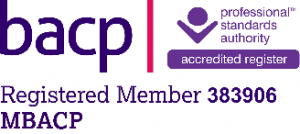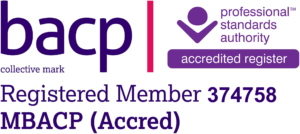I am a Fellow of the Institute of Biodynamic Medicine (IOBM) and a Licensed Biodynamic Psychotherapist and have been practising in the biodynamic field for over 25 years. See www.biodynamic.org
I have a Psychology degree from Balliol College, Oxford and have worked in community development, research, media and mental health.
Biodynamic Psychology is designed to bring you back to your most essential feelings and to reconnect with yourself.
I am resolute that you find what is best for you in your life, and I aim to meet you in a real place where you can be fully yourself.
My clients are typically people who have strong caring values, whether as parents, carers or professionals, and may have taken on a caring role, or a global issue, at a very young age. Preoccupied by other people’s problems and demands, they nevertheless have a lot of anxiety about themselves; tend to be overcommitted; often developing chronic symptoms, even beginning to encounter serious health difficulties.
Highly intelligent and sensitive, they can benefit from a treatment giving them the time and space, focus and attention, while being held and guided, to move beyond anguish and connect with the wisdom of their bodies, as a route to restore confidence in their primary ethical nature.
Biodynamic Psychology
Time and Space for You – Body and Soul
The biodynamic approach supports you to remember and reconnect with your essential flow, to consciously value the self you come to know here, to rediscover or find new ways to remain true to your self and connect back to the world from there.
Biodynamic therapy uses a range of methods, including Biodynamic Massage, Vegetotherapy, working with the body without touch, and Biodynamic Psychotherapy. A combination of talking, bodywork and massage lends itself to working intensively without excessive provocation and can be an invaluable support to specific issues or personal development.
Biodynamic Psychotherapy can include visualisation, biodynamic dream analysis, dramatising and enacting situations, speaking from your core, unravelling judgement, or freeing you from rigid patterns of thought, allowing you to express and free your most difficult and challenged feelings.
Biodynamic Massage aims to ease your mind, clear your head, relieve muscular and nervous tension, and eliminate biochemical stress products stored in your body. These touch methods are guided by your deepest bio-feedback responses, including your abdominal sounds, heard through a loudspeaker stethoscope placed on your abdomen during treatment.
This work can bring a quiet revolution, as you come out of conflict and compromise, and allow a gentle unfolding towards renewed purpose, creativity and pleasure.
“There is an innate healing mechanism in the body which dissolves nervous tension in the muscles and resolves emotional and psychological conflict on the unconscious and organic level.” Gerda Boyesen, Founder of Biodynamic Psychology.
As the Biodynamic methods begin to ‘find the key’ to reset the function of your ‘innate healing mechanism’ you can begin to reconnect more deeply to your vibrant core self – able to meet life’s challenges – experience your potential and live a more authentic and fulfilling life.
Services at Bristol Talking Therapy Rooms
- Consultation and first treatment – 2 hours.
- On-going Regular Sessions – 2 hours, scheduled fortnightly.
Other Services – available by arrangement
- Meeting @home, via Zoom, or other. These meetings not only involve talking, but also the use of well established bodywork without touch
- Biodynamic Residential Retreat Programme – A series of 6, 10 or 20 hour sessions over a concentrated period of 2-5 days, in a specially chosen residential venue – a substantial programme with space and time to really benefit.
Fees: Hourly and pro rata, based on IOBM guidelines, agreed between us.
- Fees at different locations can vary.
Contact:
For further information or to book a session with Laura:
Mobile: +44 (0) 7973 169237
Email: laurairvine100@gmail.com
Web: https://www.wholesoul.co.uk/













 Dr Walker provides therapeutic interventions for adults and children with a range of mental health difficulties, including Depression, Anxiety and Post Traumatic Stress Disorder. Dr Walker became an Associate Member of the British Psychological Society in 2012 and he is registered with the Health Professions Council as a Practitioner Psychologist.
Dr Walker provides therapeutic interventions for adults and children with a range of mental health difficulties, including Depression, Anxiety and Post Traumatic Stress Disorder. Dr Walker became an Associate Member of the British Psychological Society in 2012 and he is registered with the Health Professions Council as a Practitioner Psychologist.